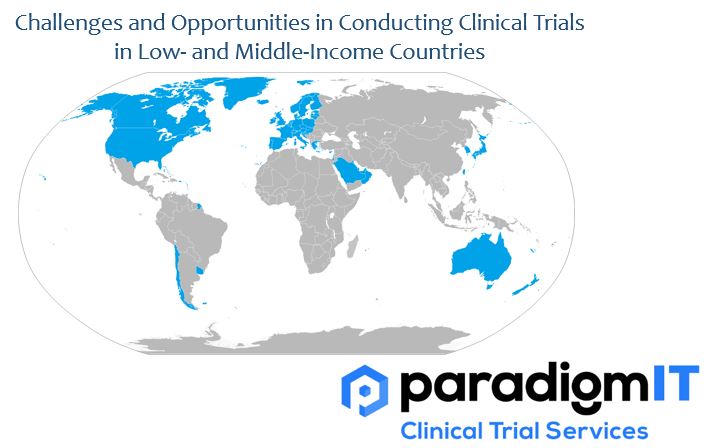Clinical trials are research studies involving human subjects that evaluate the safety and efficiency of innovative therapies, medications, or medical devices. They are an essential stage in creating new medical treatments and play a significant role in deepening our understanding of human health and illness. Clinical trials in developing countries are an important aspect of global medical research, to gather data in areas where the burden of disease is often high.
Clinical trial challenges in developing nations:
Limited infrastructure and resources: Clinical trials in impoverished nations could have trouble getting the tools they need, like finance, qualified personnel, and suitable facilities to support the study.
Regulatory challenges: Regulatory requirements and processes for clinical trials in developing countries can be less stringent than in developed countries, potentially affecting the quality and integrity of the study data.
Ethical considerations: There may be ethical concerns regarding the informed consent process and the protection of participant rights in clinical trials conducted in developing countries.
Opportunities in developing nations:
Diverse patient populations: Developing countries often have diverse patient populations with unique genetic, environmental, and lifestyle factors, providing valuable data for medical research.
Large patient pool: Developing countries often have large pools of potential participants for clinical trials.
Cost-effectiveness: Conducting clinical trials in developing countries can often be less expensive than in developed countries due to lower costs for personnel, facilities, and other logistics.
Access to unmet medical needs: Developing countries often have high levels of unmet medical needs, providing an opportunity to study new treatments and interventions in areas where they are most needed.
Here are two instances that highlight the clinical trials in developing nations and further address the advantages and disadvantages of the practice:
India’s tuberculosis (TB) trials:
India makes an ideal location for TB trials due to its high TB prevalence. Patients in India are frequently more willing to participate in clinical trials, however the challenges would be lack of infrastructure, lack of trained healthcare personnel, conducting and monitoring clinical trials may be difficult in many parts of India.
Vaccine Trails for Malaria in Sub-Saharan Africa:
Sub-Saharan Africa is important for investigations on malaria vaccines because of the region’s high malaria prevalence. Additionally, trial locations’ closeness to underserved neighborhoods may promote participation and community involvement. But challenges would be lacking established regulatory frameworks, limited access to medical facilities and qualified medical personnel to appropriately oversee and supervise trial participants.
In conclusion, conducting clinical trials in low- and middle-income countries is a complex and challenging task that requires careful planning, coordination, and execution. By approaching experts, there can be key considerations implemented to address the challenges and opportunities, and by complying the regulatory guidelines, it is possible to advance global health and improve medical care for populations in these countries.
For more information –
Visit our website – www.paradigmit.com Or you can write us at ask@paradigmit.com
Follow us for more – https://www.linkedin.com/company/paradigmittechnologyservices/?viewAsMember=true


